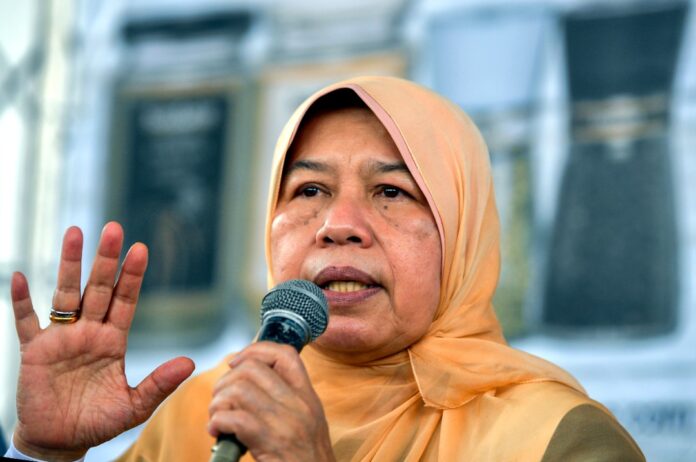KUALA LUMPUR, Aug 26 — With crude palm oil (CPO) prices probably having peaked, planters – whether smallholders or listed plantation firms – should focus on long-term prospects as the sector’s appeal is more about resilience and defensiveness at this juncture.
Plantation Industries and Commodities Minister Datuk Zuraida Kamaruddin said this was especially so as the economic outlook is unclear with the plantation sector being among the beneficiaries of food and energy inflation.
“At a glance, the future of palm oil remains bright as it is impossible to replace the golden oil entirely given how pervasive it is in our food chain. Moreover, it is also very competitive with multiple uses from high-temperature frying oil to shorteners, and as a more competitive substitute for some petrochemical products,” she said in a statement today.
While prices could remain soft in the near term with Indonesia exporting more to curb its current high inventory, Zuraida noted that market analysts generally expect CPO prices to remain supported until end-2022 on the back of a strong recovery in demand.
“Some weaknesses in edible oil prices during the second half of 2022 are not unusual due to seasonally higher production of two major oil crops – palm and soya,” she added.
Zuraida noted that the environmental footprint from oil palm cultivation is significantly smaller than other oil crops, regardless of the claims by its adversaries as it is so much more productive on a per hectare basis.
In broad terms, she stressed that Malaysia’s plantation sector as a whole has successfully managed numerous environmental, social, and governance (ESG) related issues to enjoy some of the highest standards in agriculture.
Although CPO price volatility is inevitable, market observers expect prices to stay firm supported by many factors including an expected demand recovery next year amid rising population and affluence with annual demand growth of 3.6 per cent over the past 30 years.
“However, since 2022, the COVID-19 impact has tempered growth to about 1.0 per cent but growth is expected to revert to 3.0 per cent come 2023 unless hit by a severe recession,” said Zuraida.
She added that supportive biofuel demand would also support the CPO market as elevated fossil fuel price is supportive of edible oil demand as about 20 per cent of edible oils are processed into biofuel.
“Indonesia has resumed efforts to blend up to 40 per cent palm (B40) into its biodiesel after halting work earlier due to high palm oil prices. Its current blend is B30,” said Zuraida.
















